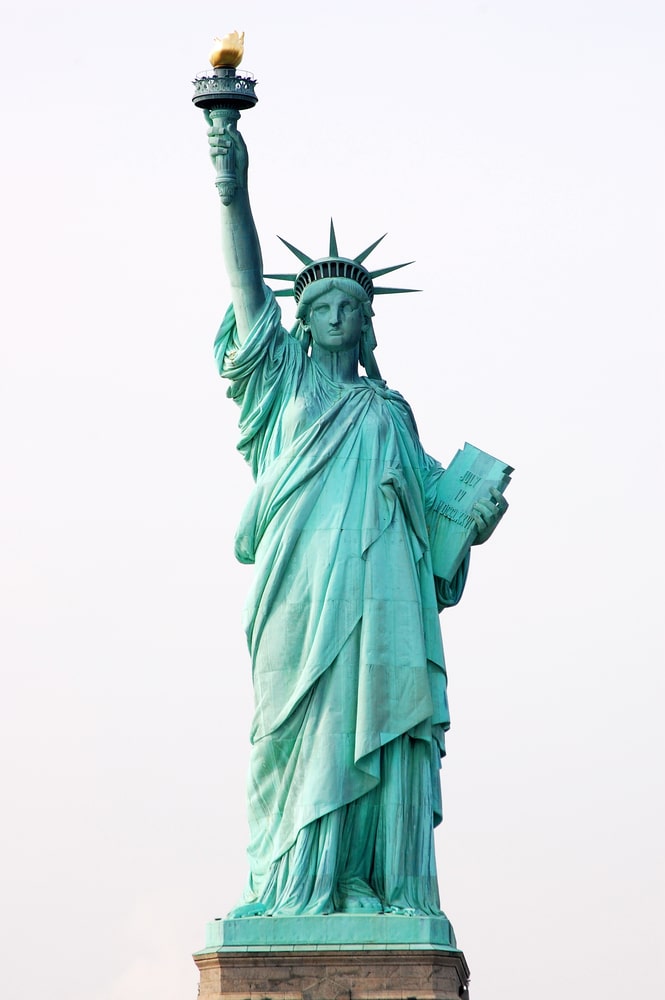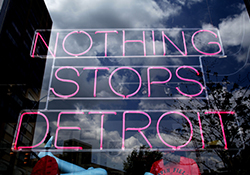Firstmost, live for yourself.
I am the apparently rare person who was touched by the divine–shown visions–and then returned to mundane life. (more…)
Firstmost, live for yourself.
I am the apparently rare person who was touched by the divine–shown visions–and then returned to mundane life. (more…)
I’ve done a bit of writing lately on the cosmic principle of giamos and its influence on the world around us, namely its association with the Otherworld, winter, and death. I’ve also been having discussions with some people I know in person about my “spiritual makeup:” just what it is that has influenced me to do what I do, and think how I think, in spiritual terms.
Upon reflection, the giamos energy’s influence on my life is enormous. I grew up surrounded by graveyards and cemeteries, out here in the rural Midwestern countryside. The land itself feels like a corpse, dead yet full of life, sustaining itself, growing out of the decay.
(And before I go on, let me say that this ties into one of the founding themes of this blog: the American dead. This is a land soaking in the influence of giamos, of Saturn, of everything that goes along with it: the Western World, associated by proxy with the Otherworld and the Unseen by virtue of being western in the Gaulish directional paradigm, is regardless a place of death and rebirth. One only has to look so far back as our modern history: we have built our nation on the lifeless bodies of natives, subjugated peoples, the harvested and unsustainably predated land, the extinct species and cultures. The Deep South is plagued by stories of hauntings, White Women, the surreal and unseen; New England has seen battles and wars, witch hunts and prejudices; the West Coast was initially an ideal, to ’49ers, to opportunists, to those who followed the Oregon Trail, who faced death at every turn. We must love death, for we trail it wherever we go.)
I also found death in my daily life. The familial Major Depressive Disorder wreaks havoc on those who have it, and we suppress our innate, terrifying closeness to death-by-suicide with medications and therapy. Still, it leaves its mark on those who have it, a mark that makes death seem all the closer for escaping it.
My perpetual closeness to giamos energy has predisposed me to some things, less others. In the Otherworld, in Dumnos, Cernunnos resides as King–I peripherally call him the King in Sleep. Cernunnos, who was the first God I really knew, laid hands on, so to speak, opened the door to every other crazy thing I did on the ongoing road of polytheism, from spirit work to necromancy, and everything in between. Cernunnos is a king of the dead, and when I am in contact with him, necromancy and its workings come that much easier to me.
On reflection, I actually found that this is true of all Saturnian/giamos influences. In times where life circumstances have pushed me closer to my MDD, I have invariably found it easier to communicate with spirits and the dead. In the winter, particularly on either side of winter (the liminal sides, before and after the deep ice, which incidentally I associate with Cernunnos), the spirit work comes easier. When I am more deeply oriented toward Dumnos, the spirit work always comes easier.
This leads, also, to the unfortunate implication that my best spirit work comes when I go off of my medication… which is a dangerous path to walk, and not something I’ll be speaking about right this moment.
I’ve had a concept of this alignment for a while, but it’s a difficult thing to express without sounding like you’re somehow “better than.” I described it as “death energy” for a while, though that isn’t all it is, of course. When I attempted to explain how to use it, I tried to explain “attunement:” how some people are more predisposed for certain types of works than others. Obviously, in this light, it sounds like a hoax or a New Age fad, but what I didn’t understand then and have neglected to mention is that this “attunement” comes at the cost of other things.
See, being close to Dumnos, the Otherworld, on the samos-to-giamos line graph means that I’m further than usual from Albios, the Heavens. Functionally, that means that I have trouble grasping related concepts, or relating to those gods. I don’t know very well how to miss something I’ve never had, but I do know that the imbalance doesn’t help the MDD. If samos is positive energy, light, and life, then that’s something that’s just that tiny bit harder to grasp for me.
When I deal with Belenos, I always have a moment of perfect wholeness that I can only imagine comes with exposure to holy samos at a divine level of intensity: hope, finely-tuned potential, loving kinship.
The benefits of being more toward Dumnos, such as they are, shouldn’t be overlooked given that one has them, though. Like I said, I find spirit work easier than it’s supposedly supposed to be, as well as various psychic feats like astral movement. And I would not trade my easy relationship with Cernunnos and the dead for anything: it’s led me to grow as a person on a whole other level beyond what I could have.
Likely, that’s to be treasured: if I cannot regularly experience the divine ecstasy of Belenos, I will gladly take the gentle acceptance of Cernunnos as my prize, and be all the happier for it. This, after all, is where I belong.
This calendar of religious dates and holidays is not academically sound. This is the religious calendar from my personal practice and reflects a number of things, including…
Cernunnos, open the way.
Open the way, God, open the way.
Between life and death, God, open the way.
Of human and divine, God, open the way.
Human religions love deities that go between: liminal gods. The Gauls have Cernunnos, such that he is documented, who lies between civilization and the wilds, life and death, past and present, physical and spiritual. (more…)
Freeform poetry in six parts:
i. Cornfields
ii. Cattle
iii. Industry
iv. Locust Summer
v. Killdeer
vi. Gravel Roads (more…)
Recent discussion in the CP discussion group regarding the American gods and the documentation I put together a while back got me thinking about patriotism, and helped me find the words I needed to discuss it.
Short story short, I love my country. Adore it, even. But when I discuss “my country,” I generally mean just that–my country, not my nation. I love the people of the country (for the most part), and I most especially love the country itself, the land and water and the genii loci. The American spirits are important to me. I’m born American and have never set foot beyond United States soil. I’ve discussed this before, how intrinsically linked my identity is with the land I grew up on and called home my whole life up until about this time last year.

In short, by its strictest definition, I’m a patriot.
Definition:
pa·tri·ot
nouna person who vigorously supports their country and is prepared to defend it against enemies or detractors.

“Not like the brazen giant of Greek fame,
With conquering limbs astride from land to land;
Here at our sea-washed, sunset gates shall stand
A mighty woman with a torch, whose flame
Is the imprisoned lightning, and her name
Mother of Exiles. From her beacon-hand
Glows world-wide welcome; her mild eyes command
The air-bridged harbor that twin cities frame.”Keep, ancient lands, your storied pomp!” cries she
With silent lips. “Give me your tired, your poor,
Your huddled masses yearning to breathe free,
The wretched refuse of your teeming shore.
Send these, the homeless, tempest-tost to me,
I lift my lamp beside the golden door!”

pa·tri·ot
nouna person who vigorously supports their country and is prepared to defend it against enemies or detractors.
pa·tri·ot
nouna person who vigorously supports what their country could be and is prepared to defend it (through vote, protest, and similar actions) against enemies such as those who seek to inhibit freedom or oppress,or detractors.

I am a Detroiter. I have lived there for a measly six months of my whole life, every other month previously spent in the countryside seven to eight hours away depending on the route. I’m not even in Detroit now, but my old home, the place where I was so entangled with the land for so many years that I feared leaving it at all. But now I think it had to be. (more…)
I’ve been talking a lot lately about “personal mythology:” the symbols that we, as humans, develop, as individuals, over time using psychological conditioning to link to magical forces. Again, for some people it really might be as simple as “green means money,” “pink means love,” but the more I self-analyze the more I learn about the ways in which I diverge from the “general” associations. The problem is that a lot of the time, these realizations come as unexpected surprises. That’s great when it happens, but wouldn’t it be great to simply instantly know your own psychological cues? (more…)
I’m not sure where, precisely, this new movement began: this sudden emphasis on necromancy, the contact with my ancestors, the renewed spiritual drive and craving, the strange focus I feel in this area. But I think the boulder started rolling when my family started dying, and after a couple mourning periods, one right after the other, they began to leave impressions on me that couldn’t be shrugged off so easily. (more…)
"Fear not. What is not real, never was and never will be. What is real, always was and can not be destroyed."
Spirit-Work & Devotional Polytheism
Academic Inquiry into Popular Culture
A journal and workbook of the author's meandering spiritual journey
Diasporic Chinese Polytheism
New Insights into Pictish Stones
ALWAYS check the front page. Bug reports on specific script pages will be ignored.
RPG Maker VX / Ace Resources & Stuff
filling in the blank as needed
combustion and creation
a biannual journal of polytheism and spiritwork
This blog serves to organize monthly discussion about the practice of Celtic Polytheism
Witchcraft for the Everyday and the Extraordinary
keep my eyes to serve, my hands to learn
Dēu̯ūs molrā, nī dugi drucon, etic galīn arbere.
The Polytheist Community Center (PCC) aims to create a safe place for polytheists and those interested in polytheism to gather, learn, and share.
Heathen Spirit Worker
and loves every second of it